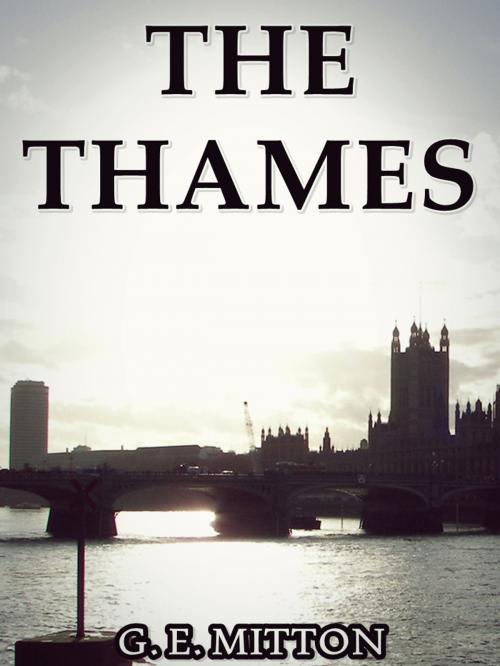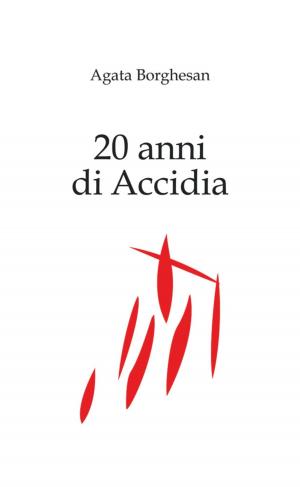| Author: | Geraldine Edith Mitton | ISBN: | 1230000261499 |
| Publisher: | BLACKIE & SON LIMITED | Publication: | August 20, 2014 |
| Imprint: | Language: | English |
| Author: | Geraldine Edith Mitton |
| ISBN: | 1230000261499 |
| Publisher: | BLACKIE & SON LIMITED |
| Publication: | August 20, 2014 |
| Imprint: | |
| Language: | English |
Example in this ebook
When the American wondered what all the fuss was about, and “guessed” that any one of his home rivers could swallow the Thames and never know it, the Englishman replied, he “guessed” it depended at which end the process began; if at the mouth, the American river would probably get no farther than the “greatest city the world has ever known” before succumbing to indigestion!
With rivers as with men, size is not an element in greatness, and for no other reason than that it carries London on its banks the Thames would be the most famous river in the world. It has other claims too, claims which are here set forth with pen and pencil; for at present we are not dealing with London at all, but with that river of pleasure of which Spenser wrote:—
Along the shores of silver-streaming Themmes;
Whose rutty bank, the which his river hemmes,
Was paynted all with variable flowers,
And all the meades adorned with dainty gemmes,
Fit to deck mayden bowres and crowne their paramoures,
Against the brydale day which is not long,
Sweet Thames! runne softly till I end my song.
Oddly enough, this is one of the comparatively few allusions to the Thames in literature, and there is no single striking ode in its honour. It is perhaps too much to expect the present Poet Laureate to fill the gap, but certainly the poet of the Thames has yet to arise.
Besides Spenser, Drayton makes allusion to the Thames in his Polyolbion, using as an allegory the wedding of Thame and Isis, from which union is born the Thames; and in this he is correct, for where Thame and Isis unite at Dorchester there begins the Thames, and all that is usually counted Thames, up to Oxford and beyond, is, as Oxford men correctly say, the Isis. Yet by custom now the river which flows past Oxford is treated as the Thames, and when we speak of our national river we count its source as being in the Cotswold Hills.
Other poets who refer to the Thames are Denham, Cowley, Milton, and Pope. In modern times Matthew Arnold’s tender descriptions of the river about and below Oxford have been many times quoted. Gray wrote an Ode on a Distant Prospect of Eton College, in which he refers to the “hoary Thames”, but the lines apostrophizing the “little victims” at play are more often quoted than those regarding the river.
The influence of the Thames on the countless sons of England who have passed through Eton and Oxford must be incalculable. It is impossible to mention Eton without thinking of Windsor, the one royal castle which really impresses foreigners in England. Buckingham Palace is a palace in name only, its ugly, stiff, stuccoed walls might belong to a gigantic box, but Windsor, with its massive towers and its splendid situation, is castle and palace both. Well may the German Emperor envy it! It carries in it something of the character of that other William, the first of the Norman Kings of England, who saw the possibilities of the situation, though little of the castle as we see it is due to him. The mass of it is of the time of Edward III, and much of it was altered in that worst era of taste, the reign of George IV. Windsor has come scatheless out of the ordeal; the fine masses of masonry already existing have carried off the alterations in their own grandeur, and the result is harmonious.
To be continue in this ebook................................................................................................................
Example in this ebook
When the American wondered what all the fuss was about, and “guessed” that any one of his home rivers could swallow the Thames and never know it, the Englishman replied, he “guessed” it depended at which end the process began; if at the mouth, the American river would probably get no farther than the “greatest city the world has ever known” before succumbing to indigestion!
With rivers as with men, size is not an element in greatness, and for no other reason than that it carries London on its banks the Thames would be the most famous river in the world. It has other claims too, claims which are here set forth with pen and pencil; for at present we are not dealing with London at all, but with that river of pleasure of which Spenser wrote:—
Along the shores of silver-streaming Themmes;
Whose rutty bank, the which his river hemmes,
Was paynted all with variable flowers,
And all the meades adorned with dainty gemmes,
Fit to deck mayden bowres and crowne their paramoures,
Against the brydale day which is not long,
Sweet Thames! runne softly till I end my song.
Oddly enough, this is one of the comparatively few allusions to the Thames in literature, and there is no single striking ode in its honour. It is perhaps too much to expect the present Poet Laureate to fill the gap, but certainly the poet of the Thames has yet to arise.
Besides Spenser, Drayton makes allusion to the Thames in his Polyolbion, using as an allegory the wedding of Thame and Isis, from which union is born the Thames; and in this he is correct, for where Thame and Isis unite at Dorchester there begins the Thames, and all that is usually counted Thames, up to Oxford and beyond, is, as Oxford men correctly say, the Isis. Yet by custom now the river which flows past Oxford is treated as the Thames, and when we speak of our national river we count its source as being in the Cotswold Hills.
Other poets who refer to the Thames are Denham, Cowley, Milton, and Pope. In modern times Matthew Arnold’s tender descriptions of the river about and below Oxford have been many times quoted. Gray wrote an Ode on a Distant Prospect of Eton College, in which he refers to the “hoary Thames”, but the lines apostrophizing the “little victims” at play are more often quoted than those regarding the river.
The influence of the Thames on the countless sons of England who have passed through Eton and Oxford must be incalculable. It is impossible to mention Eton without thinking of Windsor, the one royal castle which really impresses foreigners in England. Buckingham Palace is a palace in name only, its ugly, stiff, stuccoed walls might belong to a gigantic box, but Windsor, with its massive towers and its splendid situation, is castle and palace both. Well may the German Emperor envy it! It carries in it something of the character of that other William, the first of the Norman Kings of England, who saw the possibilities of the situation, though little of the castle as we see it is due to him. The mass of it is of the time of Edward III, and much of it was altered in that worst era of taste, the reign of George IV. Windsor has come scatheless out of the ordeal; the fine masses of masonry already existing have carried off the alterations in their own grandeur, and the result is harmonious.
To be continue in this ebook................................................................................................................















